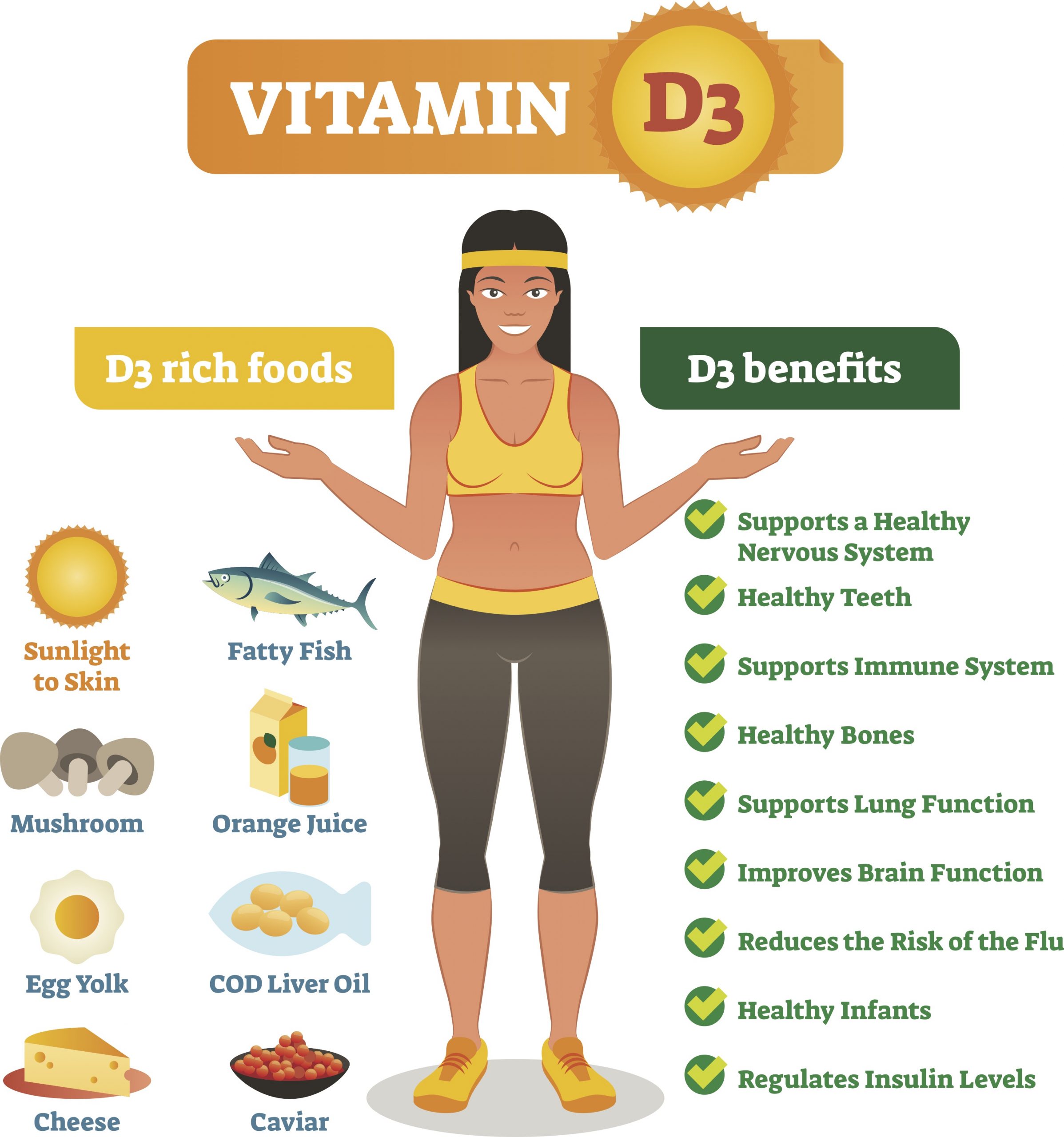Vitamin D is is one of the most important vitamins your body needs to keep you happy and healthy for multiple reasons.
Vitamin D helps maintain what is called “innate immunity” – the first response your body has when it senses that something is amiss internally.*
Although direct sunlight triggers the body’s natural production of vitamin D, many individuals haven’t been getting enough vitamin D because they’ve been quarantining at home. As the winter months and decreasing sunlight approaches, we need vitamin D more than ever, but we are now more likely to avoid the outdoors when it’s colder, thus getting less of the sunshine vitamin.
Vitamin D supplementation can fill the sunshine gap during this time.* Unfortunately, the powders used in many pre-mixed vitamin D dilutions frequently contain potentially detrimental ingredients, like lactose, as well as preservatives like BHT, BHA, sodium benzoate, and sorbic acid. Thorne’s vitamin D is formulated for individuals who are sensitive to those ingredients.
Research suggests that an optimal serum vitamin D level should be in the range of 32-80 ng/mL 25-hydroxyvitamin D.

The Benefits of Vitamin D
1.) Vitamin D fights disease
2.) Vitamin D reduces depression
3.) Vitamin D boosts weight loss
Beware of D-ficiency
Many factors can affect your ability to get sufficient amounts of vitamin D through the sun alone. These factors include:
- Being in an area with high pollution
- Using sunscreen
- Spending more time indoors
- Living in big cities where buildings block sunlight
- Having darker skin. (The higher the levels of melanin, the less vitamin D the skin can absorb.)
These factors contribute to vitamin D deficiency in an increasing number of people. That’s why it’s important to get some of your vitamin D from sources besides sunlight.
The symptoms of a vitamin D deficiency in adults include:
- tiredness, aches and pains, and a general sense of not feeling well
- severe bone or muscle pain or weakness that may cause difficulty climbing stairs or getting up from the floor or a low chair, or cause you to walk with a waddling gait
- stress fractures, especially in your legs, pelvis, and hips
Doctors can diagnose a vitamin D deficiency by performing a simple blood test. If you have a deficiency, your doctor may order X-rays to check the strength of your bones.
If you’re diagnosed with a vitamin D deficiency, your doctor will likely recommend you take daily vitamin D supplements. If you have a severe deficiency, they may instead recommend high-dose vitamin D tablets or liquids. You should also make sure to get vitamin D through sunlight and the foods you eat.

Food sources of vitamin D
Few foods contain vitamin D naturally. Because of this, some foods are fortified. This means that vitamin D has been added. Foods that contain vitamin D include:
- salmon
- sardines
- egg yolk
- shrimp
- milk (fortified)
- cereal (fortified)
- yogurt (fortified)
- orange juice (fortified)
It can be hard to get enough vitamin D each day through sun exposure and food alone, so taking vitamin D supplements can help.
How much do you need?
There has been some controversy over the amount of vitamin D needed for healthy functioning. Recent research indicates that you need more vitamin D than was once thought. Normal blood serum levels range from 50 to 100 micrograms per deciliter. Depending on your blood level, you may need more vitamin D.
The Institute of Food and Agricultural Sciences reports new recommendations based on international units (IUs) per day. IUs are a standard type of measurement for drugs and vitamins. IUs help experts determine recommended dose, toxicity, and deficiency levels for each person.
One IU is not the same for each type of vitamin. An IU is determined by how much of a substance produces an effect in your body. The recommended IUs for vitamin D are:
- children and teens: 600 IU
- adults up to age 70: 600 IU
- adults over age 70: 800 IU
- pregnant or breastfeeding women: 600 IU
Learn more about Vitamin D3 and check out our other blog posts for great guides to a healthier you!
Click or call Script Pharmacy today to see what a local independent pharmacy can do for you.


